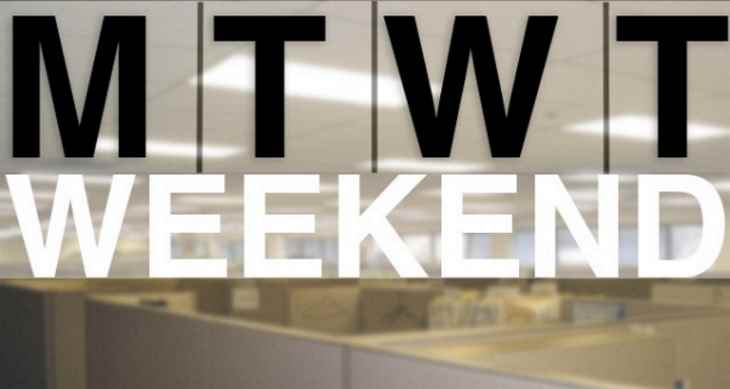Have you ever heard the cry “thank God it’s Monday?” No one has. It’s about as common as bumper stickers advocating for a 50-hour work week. The rut is only too common in the workplace. Grinding it out hour by hour, with gray days blurring together, is no way to increase creativity or morale.
Great startups are often marked by something new and different they do. Your innovation could very well be the four-day work week.
Creativity isn’t a work horse
There’s abundant verbiage in business literature about some of the successful companies, many in IT but not all, that have some sort of flexible schedule. It might involve built-in breaks for brainstorming or rejuvenating the mind, but it could also take the shape of a shorter work week. There’s ample evidence that great ideas come from talent, intelligence, inspiration, and engagement. It isn’t that if you sit there long enough it will happen.
And creativity isn’t manufactured bit by bit from little pieces that take forty hours a week. Starting on Tuesday, ending on Thursday, or taking Wednesday off keeps morale high and brains fresh, two circumstances conducive to creativity.
Morale Through Flexibility
When we suggest that short work weeks keep morale up, few will disagree or even need an explanation. But one of the reasons for an increase in morale is not just a nice long weekend, but a slice of free time during the week for things like doctor’s appointments, getting car repairs, etc. A Forbes article tells us that a recent study find that 52% of white collar workers leave the office for such non-essential errands such as buying flowers, gifts, birthday cards. Feeling free to do so on off time should increase an employee’s focus on the job.
Get a Life
Related to the flexibility that the four-day week affords for contingencies like dentist’s appointments, it can also provide regular chunks of time for a person to enhance his or her life outside of the office. With added free time, a worker can add things like care of grand children, hobbies or avocations such as the arts, exercise, etc. A well-rounded person is likely to bring some of his or her versatile personality back into the workplace.
Four Intense Days
Treehouse, a Portland startup that writes online courses for IT skills, practices the four-day week. Its CEO, Ryan Carson, attests to how hard it can be to squeeze in all the needed work in four days. This speaks to the idea that the press of the looming deadlines has a good psychological effect on employees, causing them to put the pedal to the floor.
This causes a win-win situation, less time at the office for everyone, presumably with no increase in quantity of work, with a good chance for an increase in quality.
It may go without saying that while you’re considering something like a four-day work week, you can also go into other permutations, something flexible. The key is to cut down on the grind and the sameness of days and to make your employees feel free and less burdened. The effect on retention should be spectacular.
